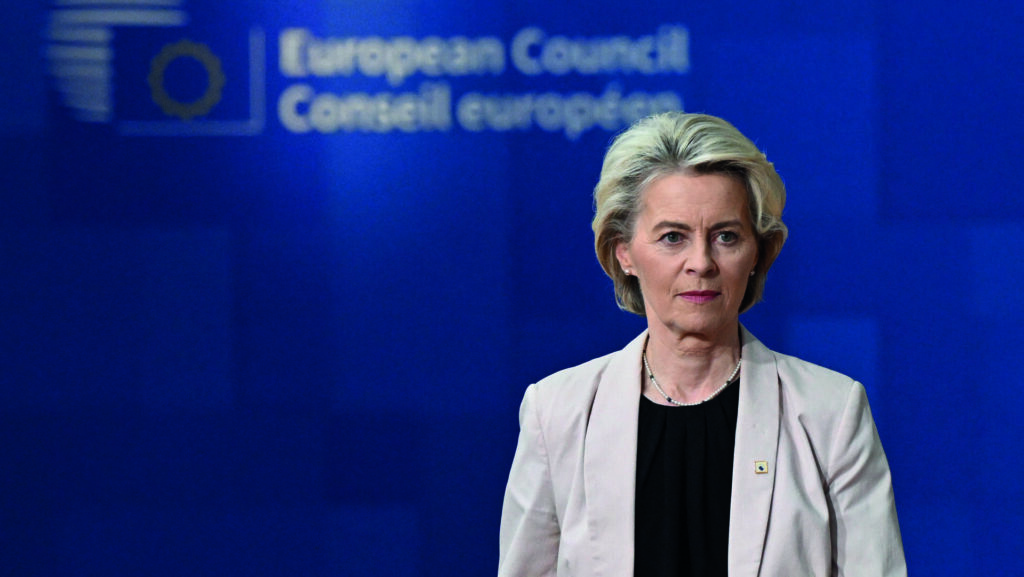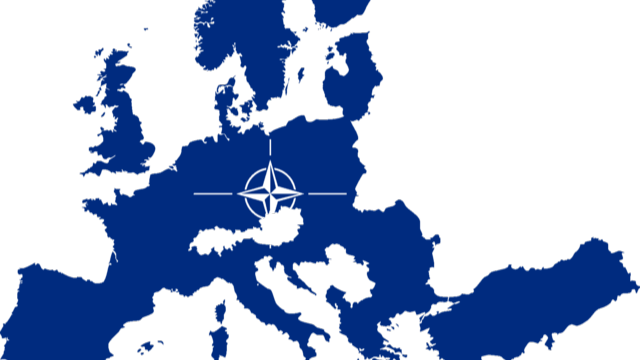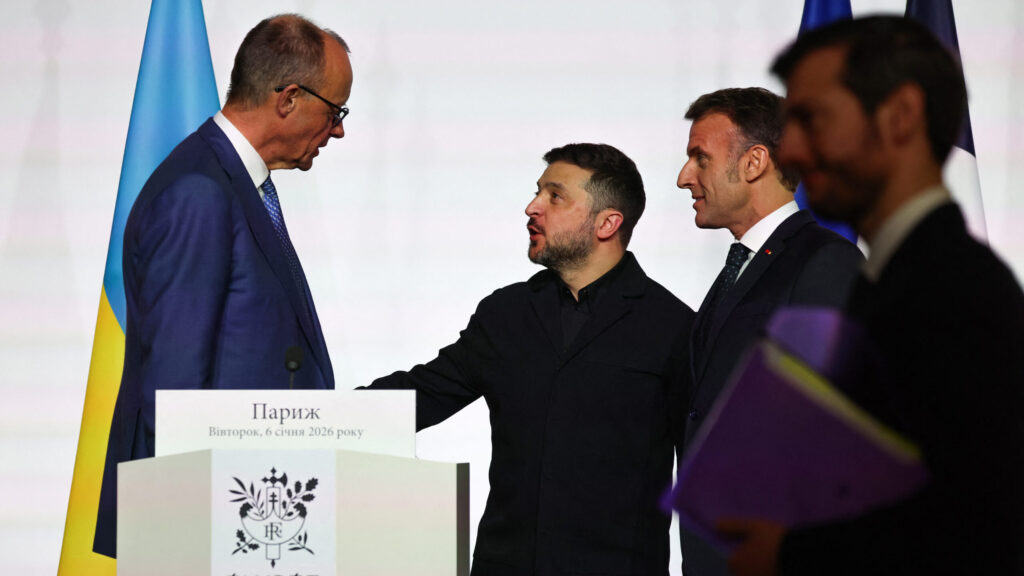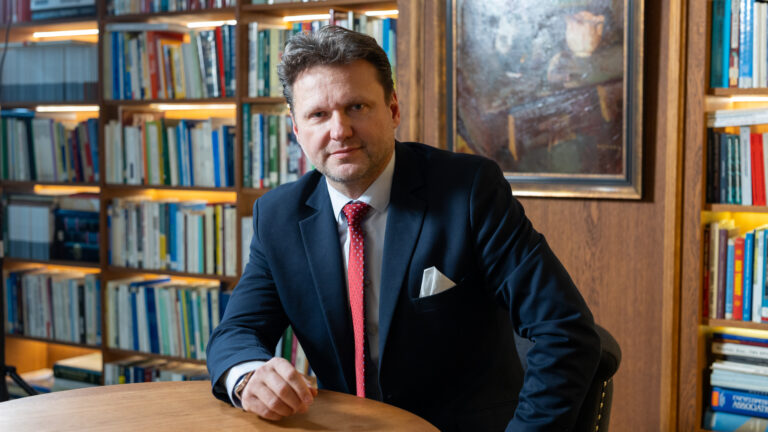Benedetta Vimercati is an Associate Professor at the University of Milan in Milan, Italy, where she teaches constitutional law. She is also a member of the PhD Committee Public, International, and European Law at her university. Ms Vimercati was one of the distinguished guests featured at the event on Culture, Identity, and Constitution hosted by the Mathias Corvinus Collegium. After her insightful lecture, she gave an exclusive interview to Hungarian Conservative.
***
You have just finished your speech and your panel discussion at a conference on Culture, Identity, and Constitution hosted by MCC. The case you brought from the Italian perspective was a very recent one about national days of mourning being officially recognized by the Italian government, and there was a little bit of controversy with the decision, correct? Can you elaborate on that, please?
Yes, this is not a case decided by a court. It’s something that happened a couple of days ago. This example was useful to make clear the division between the Catholic side of Italian society and the other part that had a great influence in the Constitutional Assembly, that is, the Communist Party. And this case is really significant because it was not, again, decided by the court. Due to the death of the Pope, the government decided to establish five days of mourning, and the issue was that these days of mourning overlapped with a very important civic festivity in Italy, the Liberation Day. That is the day that commemorates the liberation of Italy from fascism and the importance of the Italian resistance and the role of the resistance in liberating Italy from fascism. The decision of the government didn’t cancel the commemoration of Liberation Day, but some say the expansion of the mourning overlapping with these important civic days risks making this important civic day less important. So now the most important event is the Pope’s death and the mourning, not Liberation Day.
Are they making the argument based on the separation of church and state? Is that the issue?
Yeah, because this is one of the main aspects of the Italian Constitution, as Italy has a history that is interlinked with Catholicism and with the story of the Vatican in Italy. But when the Constitutional Assembly decided to write the Constitution, they wrote in the Constitution that the church and the state are separated. And that’s one of the important principles of the Italian constitution.
The Italian Constitution doesn’t mention the laïcité principle, as in France or in other constitutions, but the Constitutional Court recognizes the presence of these principles among the Italian values of our Constitution, which has a different meaning from the principle of laïcité in France; they have profoundly different meanings. The principle of laïcité in Italy means that church and state are separated, so the church cannot influence the decision of the state, but it does not entail that religion cannot find an expression in the public sphere, in public spaces.
As I understand, Roman law predates the Catholic church. So, there was a codified law in the geographic location of Italy before there was a Catholic church.
Yeah, of course. And one of the other important parts of the Italian Constitution is also the recognition of the treaties of the concordats between the Roman Catholic Church and the state. And it is really important because it is so central in the Italian Constitution that if you want to change the relationship between the state and the church, you have to amend the Constitution. So it is something that explains the strong relationship between the state and the church within the Italian legal system, but also the decision to maintain them separately from a constitutional perspective.
We here in Hungary in our Fundamental Law have multiple references to Hungary being a Christian culture, but that’s not something that would be able to pass in Italy based on what you are saying.
No, we don’t have any references within our Constitution to our Christian roots. We have this provision that regulates the relationship between the state and the church, but we do not have any references in the Constitution to the Catholic roots of Italy.
For instance, we also do not have a preamble to the Constitution where we can express our roots, our Catholic roots. The Constitutional Assembly decided not to write a preamble to the Constitution, just the rules of the Constitution. And among these rules, you cannot find any references to the Catholic roots of the Italians due to the strong clash between the Catholic Party and the Communist Party during the work of the Constitutional Assembly. It was a compromise between the Socialist Party and the Catholics.
I’m sorry, I am not very familiar with the issue, but it sounds like this Constitution was written after World War II.
Yeah, the Italian constitution is, as I said before, truly a child of its time because it was written at the end of the Second World War, and it has also been influenced by different geopolitical aspects.
American influence, probably?
Yes, American influence, and that of the Catholic Party, and also the Soviet influence expressed by the Communist Party, which was really strong at that time in Italy. Now, the Communist Party is not so popular. But at the time of the writing of the Constitution, the Catholic Party and the Communist Party were the most important parties in the Constitutional Assembly.
There’s also another case I remember you talked about in your speech, which is about the teaching of the Italian national anthem and how it supposedly interfered with some minority rights.
Yeah, because we have a really difficult history in Italy. Italy was born at the end of the 19th century, but has annexed other parts many times, which became parts of the Italian state later. And one of those parts is South Tyrol. It is one of the modern regions of Italy, it’s part of one of the main important regions in the area, Trentino. Part of this region is South Tyrol, which was under Austria.
So this law was passed and enacted in 2012, which said we have to balance the importance of national identity through the recognition of the importance of teaching our anthem and its historical significance in schools, but at the same time we have to consider the cultural and historical diversity of the Italian system and of the different parts of the country, especially South Tyrol, which was directly linked to Austria, as some of craziest parts of the anthem say something not so kind about Austrians. So the decision was to leave space for this region to decide how to include and comply with these duties to promote the anthem in school, due to the historical origin of this part.

Do you agree with the decision?
Well, this is a really tough question. I don’t know if I completely agree. I think it is important to consider the different cultures and histories of the different parts of the Italian system. For example, we have an important provision in our Constitution that guarantees protection to the cultural and historical languages of minorities due to our history, and South Tyrol is an example of that. I don’t know if you have to leave this much freedom to be able to choose if you want to bring the anthem into schools. The anthem is part of our identity.
The issue is really sensitive in this part of Italy. In Italy, we have different kinds of regions and some regions are considered special due to their historical languages and different cultural traditions. One of them is Trentino, another one is South Tyrol. Also, from a different perspective of the vertical division of powers, we structure our system according to these differences. Another region that is considered special is Sicily. Because Sicily is an island, it has a different history and different aspects of culture. Especially after the Second World War, when some were saying Sicily could become one of the states of the United States of America, because the US wanted to come to Sicily and had many military bases in Sicily.
Well, they would probably be a territory, not a state.
Yeah, yeah. So the fear was that we didn’t want to lose part of our state. So in order to smooth out these differences, we had to accommodate them. I think that this is part of our history. I don’t know if the perfect solution, the ideal solution, is that you’re not obliged to bring the anthem into school. Probably the solution is: you are a special region, you have some differences, hence you have different regulations in certain aspects, for example, about culture.
What is your opinion on the close relationship between Prime Minister Orbán of Hungary and Prime Minister Meloni of Italy? Do you think that the two countries are now more culturally linked since Prime Minister Meloni took office in 2022?
I think that the relationship is due to the fact that, especially in Italy, the idea of having a clear national identity is something that is mostly linked to the right-wing parties, not the left-wing parties, because Italian cultural identity is rooted in Christian roots. That is something that is more liked by right-wing parties than left-wing parties.
But this is not only a political issue, a political factor that has been created by this link. I think there is something deeper, and one of the aspects that helped me create this link is also the attention from our Prime Minister Meloni to the importance of national identity with respect to the European Union. So we, for example, had a great struggle with the European Union about the regulation of migration.
That’s a common issue between Hungary and Italy.
Yeah, that’s a really important common issue. Migration is a great concern to us because we are one of the first countries for the migrants coming to Europe. So we have a huge number of migrants, and probably Italians feel like they want to be left alone in addressing the issue, this challenge. Probably, this is one of the other elements that helped create a relationship between Meloni and Orbán, not only from a political point of view.
‘Migration is a great concern to us because we are one of the first countries for the migrants coming to Europe’
In a sense, it is not just a problem of the relationship between the Italian state and the European Union or the Hungarian state and the European Union, but it’s something that is important in how we can move forward in the European integration process. What are the values? What are the aspects that we have together? And I think that Meloni and Orbán have an agreement on these issues, moving away from a trend of the European Union that usually puts the focus on individual rights and fosters the trends of bureaucracy that were not considered the main important tools to create this European integration process. Also, the conception of the division of powers between the powers of the Member States and the powers of the European Union. This is another important common point between Meloni and Orbán.
Related articles:







